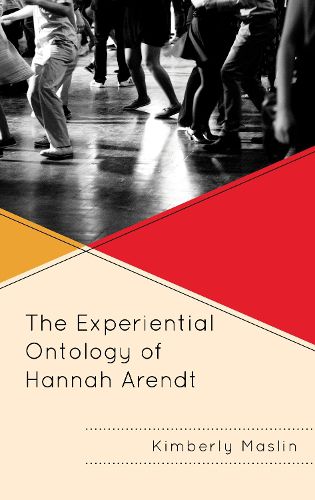Readings Newsletter
Become a Readings Member to make your shopping experience even easier.
Sign in or sign up for free!
You’re not far away from qualifying for FREE standard shipping within Australia
You’ve qualified for FREE standard shipping within Australia
The cart is loading…






In The Experiential Ontology of Hannah Arendt, Kim Maslin examines Hannah Arendt’s political philosophy through a Heideggerian framework. Maslin argues that not only did Arendt grew beyond the role of naive and beguiled student, but she became one of Heidegger’s most astute critics. Well acquainted with and deeply respectful of his contributions to existential philosophy, Arendt viewed Heidegger’s work as both profoundly insightful and extraordinarily myopic. Not contented to simply offer a critique of her mentor’s work, Arendt engaged in a lifelong struggle to come to terms with the collective implications of fundamental ontology. Maslin argues that Arendt shifted to political philosophy less to escape her own disappointment at Heidegger’s personal betrayal, but rather as an attempt to right the collective flaws of fundamental ontology. Her project offers a politically responsive, hence responsible, modification of Heidegger’s fundamental ontology. She suggests that Heidegger’s allegedly descriptive and non-normative insight into the nature of being is necessarily incomplete, and potentially irresponsible, unless it is undertaken in a manner which is mindful of the collective implications. As such, Maslin shows how Arendt attempts to construct an experiential ontology that transforms Heidegger’s fundamental ontology for use in the public sphere.
$9.00 standard shipping within Australia
FREE standard shipping within Australia for orders over $100.00
Express & International shipping calculated at checkout
In The Experiential Ontology of Hannah Arendt, Kim Maslin examines Hannah Arendt’s political philosophy through a Heideggerian framework. Maslin argues that not only did Arendt grew beyond the role of naive and beguiled student, but she became one of Heidegger’s most astute critics. Well acquainted with and deeply respectful of his contributions to existential philosophy, Arendt viewed Heidegger’s work as both profoundly insightful and extraordinarily myopic. Not contented to simply offer a critique of her mentor’s work, Arendt engaged in a lifelong struggle to come to terms with the collective implications of fundamental ontology. Maslin argues that Arendt shifted to political philosophy less to escape her own disappointment at Heidegger’s personal betrayal, but rather as an attempt to right the collective flaws of fundamental ontology. Her project offers a politically responsive, hence responsible, modification of Heidegger’s fundamental ontology. She suggests that Heidegger’s allegedly descriptive and non-normative insight into the nature of being is necessarily incomplete, and potentially irresponsible, unless it is undertaken in a manner which is mindful of the collective implications. As such, Maslin shows how Arendt attempts to construct an experiential ontology that transforms Heidegger’s fundamental ontology for use in the public sphere.